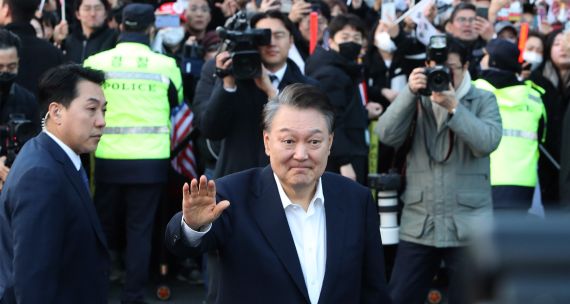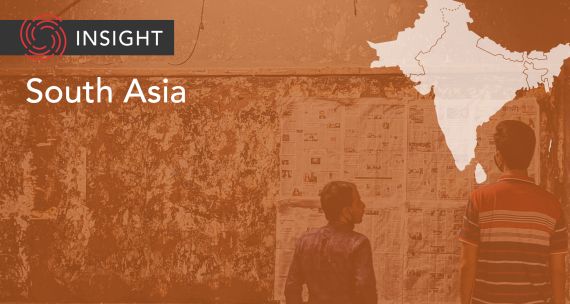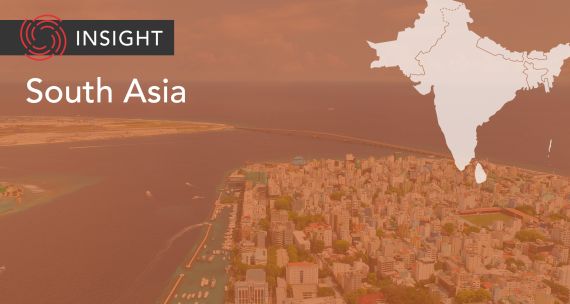The Takeaway
Pakistan has reached a boiling point: the country is teetering on the brink of economic collapse and the government, led by Prime Minister Shehbaz Sharif, is struggling against calls for fresh elections by the Imran Khan-led opposition. Pakistan’s election commission, meanwhile, has stated that it is unable to conduct general elections at the moment, throwing another wrench into the country's ongoing political crisis.
In Brief
On March 24, Pakistan's Defence Minister Khawaja Asif stated in a press conference that the country did not have sufficient funds to hold elections. The announcement came amid a brewing economic, political, and security crisis in Pakistan, sparked by former prime minister Imran Khan's ouster from parliament in 2022 — just 15 months short of the full five-year term. Khan has been strategizing and campaigning for the country to hold elections soon, while Pakistan’s Supreme Court has ordered political parties to come to the negotiating table and determine a solution to this fast-evolving political debacle.
Implications
Since the April 2022 vote of no-confidence in the Pakistani parliament, Imran Khan, leader of the Pakistan Tehreek-e-Insaf party (PTI), has not only maintained his committed political base, but gained new supporters. To prove his ouster in 2022 was “illegal” (and banking that his resulting notoriety could get him re-elected), in January 2023, Khan dissolved the PTI-governed legislative assemblies of Punjab and Khyber Pakhtunkhwa (KP), which account for 66 per cent of the country’s national assembly seats. Since national elections and the four provincial polls in Pakistan are typically held around the same time for logistical and financial purposes, Khan likely sought to force national elections to be held earlier than the originally scheduled timeline of October 2023. However, the Election Commission of Pakistan (ECP) has conveyed its inability to conduct general elections in line with Khan’s timeline, citing constitutional, legal, and logistical issues.
Constitutionally, elections should be held every five years and within 60 days of the assembly’s dissolution. In the case of early dissolutions, elections should be held within 90 days of dissolution. Therefore, the Supreme Court of Pakistan, after rejecting a petition from the defence ministry asking to postpone the provincial polls, constitutionally stayed its suo moto decision (i.e. an action taken by the court of its own accord) to order snap polls in the populous Punjab province on May 14. KP election dates remain undefined.
But snap polls have serious implications for gender representation among the electorate. Pakistani women have faced decades-long community-imposed bans on voting, which translates into their disenfranchisement, as women remain highly under-registered on electoral rolls. Even as the ECP strives to register more female voters, 11.37 million women are reportedly unregistered and are unlikely to be registered by the cut-off period of 30 days before the date of elections.
Legally, according to Section 14 of the Elections Act, the ECP is also obligated to declare an election “strategy” at least four months prior to the polls. A key component of this election strategy implicates a 2021 bill passed by Khan’s PTI-led government that mandates the use of electronic voting machines (EVMs). The cost of setting up EVMs could hit C$479 million (25 billion Pakistani rupees), which is three and a half times the total costs incurred during the 2018 general elections. EVMs also require rigorous trials before deployment for reliability purposes, leading both the current government and the ECP to oppose the use of EVMs
Holding elections within the next few months also poses potential logistical and, more importantly, financial challenges for Pakistan. Firstly, the country lacks the funding required for training polling personnel and printing ballot papers. Secondly, Pakistan’s recent record of high inflation and increased prices on essential goods — combined with the government’s decision to hike fuel prices — has drawn significant criticism from the opposition and Pakistani citizens. But the government is holding on: in a recent vote of confidence, the national assembly reiterated its support for the ruling government and Sharif.
What’s Next
- Currency decline may solve IMF loan debacle
In January, a day after foreign exchange companies removed a currency cap on the dollar-rupee exchange rate, the Pakistani rupee witnessed a sharp decline of 9.6 per cent against the U.S. dollar (from 255.4 to 230.9 Pakistani rupees per one U.S. dollar), marking the largest one-day drop since 1999. The removal of the exchange rate cap is a key demand of the International Monetary Fund (IMF), and foreign exchange companies claimed that the cap was causing “artificial distortions” for the Pakistan economy. This drop may prove beneficial for the current government in establishing the need to secure the US$6.5-billion IMF loan.
- Domestic security concerns in Pakistan
Pakistan’s political and economic crises are further complicated by domestic security issues. The banned Tehreek-e-Taliban Pakistan (TTP) has ramped up violent attacks in various parts of the country. Pakistan has failed to negotiate with the TTP, who have sanctuary in Afghanistan, thereby straining relations with Kabul. As TTP strongholds are mainly limited to the regions of KP and Balochistan, the group’s expansion will provoke other rival factions, such as the Baloch militants, also to ramp up attacks in the region, further draining the state treasury.
• Produced by CAST’s South Asia team: Dr. Sreyoshi Dey (Program Manager); Prerana Das (Analyst); Suyesha Dutta (Analyst); and Silvia Rozario (Analyst).




